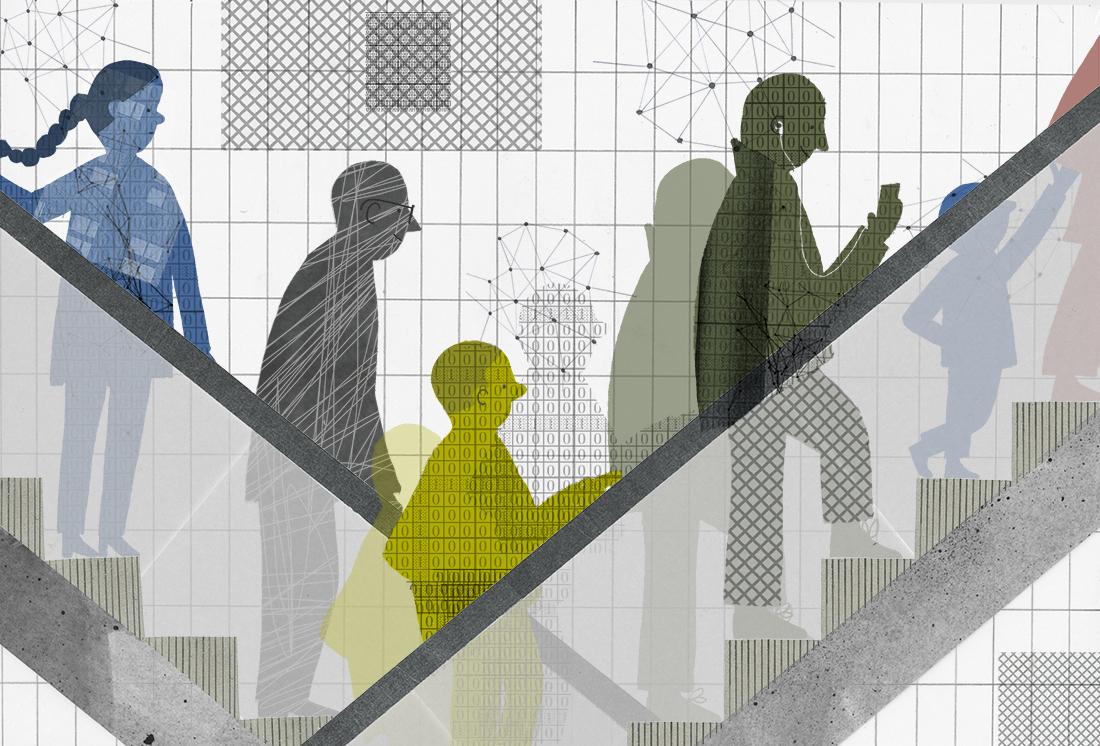The power of AI narratives webinar
As part of our series on AI for public good we asked: how can we ensure that mainstream narratives concerning AI build literacy, balance potential risks and rewards, and foster genuine public engagement?
Our panel of guest speakers unpicked the mainstream AI narratives and explored what stories they tell, and who they serve.
Established narratives on AI usually fall into polarising visions of a dystopian or utopian future, which do nothing to empower the majority of us when it comes to our AI knowledge. It's important that we scrutinise these existing narratives and challenge how they impact us, who benefits from them, and what we can do to change the landscape.
More about this event
In this webinar our speakers built on the ideas and reflections set out in their essays, where they examined mainstream narratives on AI from different perspectives.
We discussed topics such as digital inclusion, AI literacy, data narratives, and public engagement.
Speakers
Yasmin leads on commissioning thinkers and practitioners with original ideas exploring deeper, cross-cutting issues related to poverty. Previously, Yasmin worked at Black Thrive Lambeth managing the employment workstream, which sought to improve employment outcomes for Black people with long-term health conditions in Lambeth, South London. She also ran her own social enterprise which worked with young Londoners to widen access to arts and cultural spaces.
Dr Emma Stone is Director of Evidence and Engagement at Good Things Foundation - the UK’s leading digital inclusion charity. Good Things runs the National Digital Inclusion Network, National Databank, National Device Bank, and Learn My Way - all free resources for communities to tackle digital exclusion. Her work straddles policy, partnerships, research and thought leadership. She leads a team of specialist experts skilled in design, user research, evaluation, data insights, marketing, communications, external affairs and advocacy.
Previously, Emma worked at JRF, leading the Policy and Research department, overseeing programmes on poverty, place, housing, ageing, disability, race equality, and communities.
Emma is deeply committed to social justice and tackling inequality and holds a strong belief that change is possible. Especially when solutions are co-designed with community partners and people with lived experience.
Tania is the founder of We and AI and coordinator of the Better Images of AI collaboration.
She is on the Founding Editorial Board for the Springer AI and Ethics Journal and on the Public Engagement and Ecosystem Strategy Advisory Board of The Alan Turing Institute.
Tania is a Lead for TLA Tech for Disability, a member of the IEEE P7015 Data and AI Literacy, Skills, and Readiness working group, and was named one of WIAIE’s 100 Brilliant Women in AI Ethics 2021.
Jeni is the founder of Connected by Data, a campaign that aims to put community at the centre of data narratives, practices and policies. She is a Senior Fellow at the Centre for International Governance Innovation, adjunct Professor at Southampton’s Web Science Institute, Associate Researcher at Cambridge’s Bennett Institute for Public Policy, and a Shuttleworth Foundation Fellow.
Jeni was CEO at the Open Data Institute, where she held leadership roles for nine years and worked with companies and governments to build an open, trustworthy data ecosystem, and a co-chair of GPAI’s Data Governance Working Group. She sits on the Boards of Creative Commons, the Global Partnership for Sustainable Development Data and the Information Law and Policy Centre.
She has a PhD in AI and an OBE for services to technology and open data. She loves Lego and board games and is the proud co-creator of the open data board game, Datopolis.
Dan is Executive Director at Future Narratives Lab, a non-profit research initiative that works to understand how ingrained conventional understandings act as a barrier to tackling major social challenges, and to translate that knowledge into creating & propagating alternatives.
With a background in community organising, over the past decade he has worked with campaigns, coalitions, foundations, and political parties in the UK and globally to develop strategies for broadening the appeal of alternative social and economic propositions.
Dan founded and led creative mobilisation agency Small Axe, is a Co-owning Member Director at economic development co-operative Stir to Action, and has written and lectured for institutions including UC Berkeley, Goldsmith's and London College of Communication, UAL.
Who is this event for?
- Not-for-profits, charities and social enterprises
- Thinktanks
- Funders
- Local Government
- Grassroots and local communities
- Anyone interested in learning more about AI

This event is part of the AI for public good topic.
Find out more about our work in this area.